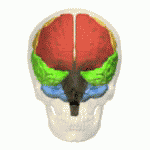
A team of researchers from Université Laval, CHU de Québec, and pharmaceutical firm GlaxoSmithKline (GSK) has discovered a way to stimulate the brain’s natural defense mechanisms in people with Alzheimer’s disease.A team of researchers from Université Laval, CHU de Québec, and pharmaceutical firm GlaxoSmithKline (GSK) has discovered a way to stimulate the brain’s natural defense mechanisms in people with Alzheimer’s disease. Continue reading













